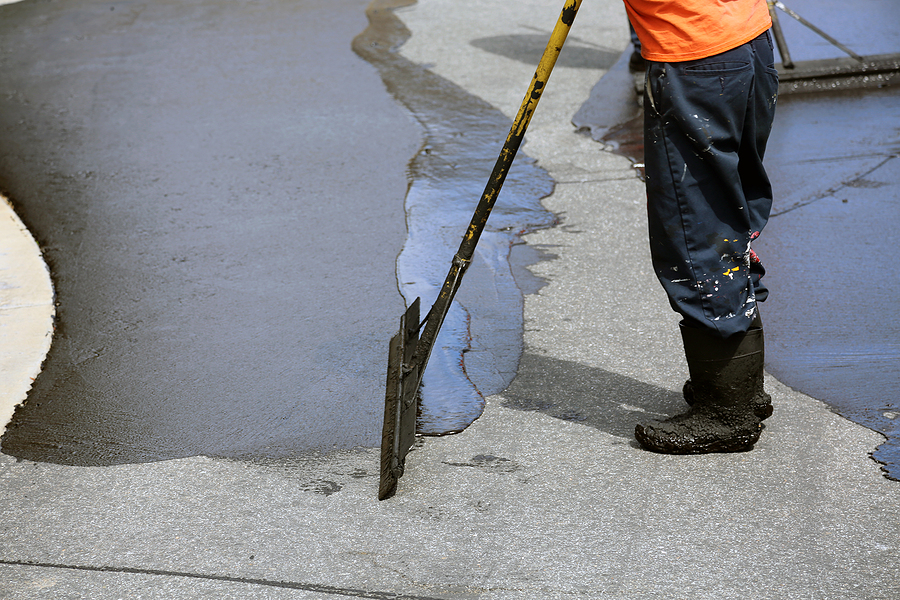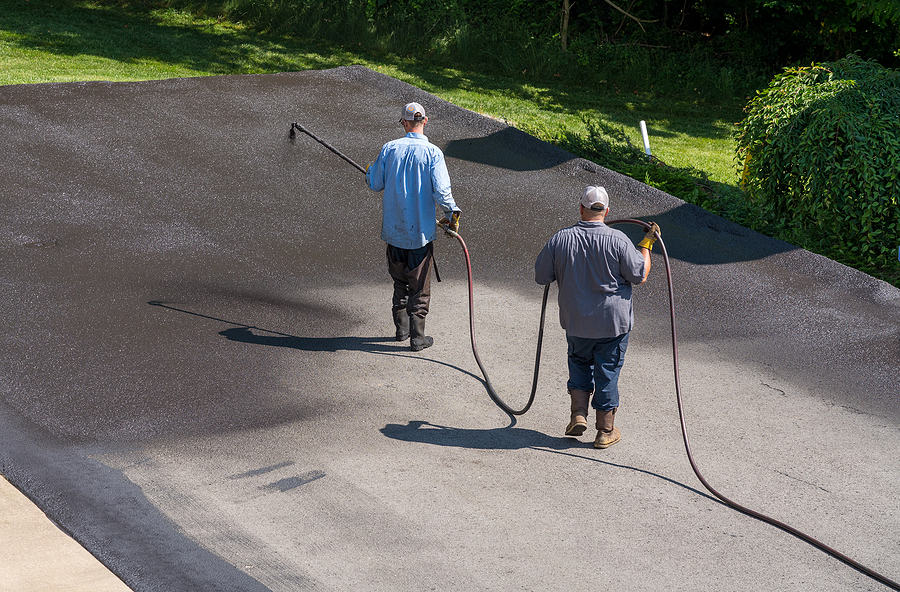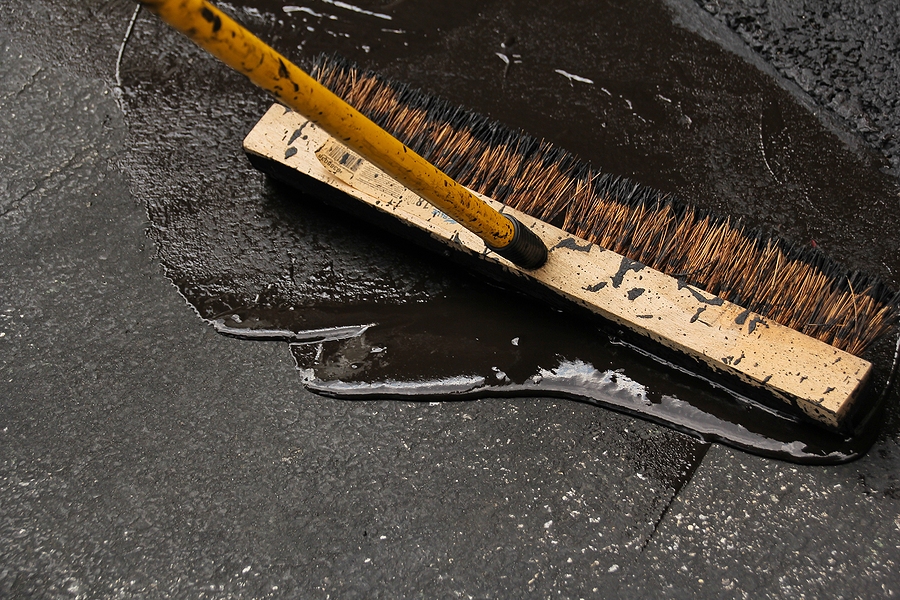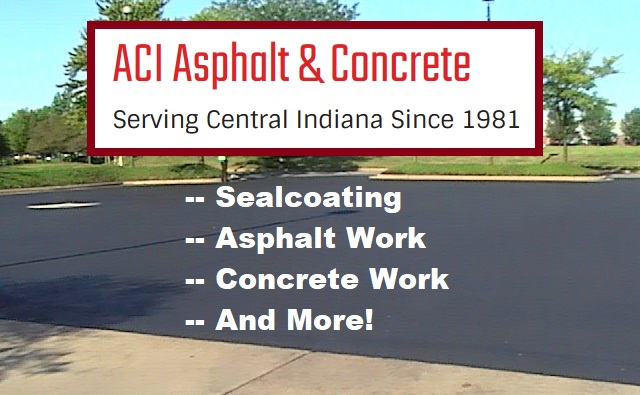A smooth, jet-black driveway does more than just boost your home’s curb appeal—it serves as a functional welcome mat for your property. But asphalt, like any other material exposed to the elements, has a lifespan. Without proper care, that smooth surface can quickly turn into a landscape of gray oxidation, spiderweb cracks, and deepened potholes.
For homeowners in Indiana, the stakes are even higher. Our distinct seasons bring specific challenges to pavement, making maintenance not just a cosmetic choice, but a structural necessity. Neglecting your asphalt can lead to expensive repairs or even total replacement far sooner than you might expect.
One of the most effective ways to protect your investment is through sealcoating. However, slathering sealant on a driveway isn’t something you can do effectively on a whim. Success depends heavily on timing, temperature, and preparation. By understanding the ideal conditions for application, you can ensure your pavement remains resilient against the harsh Hoosier climate for years to come.
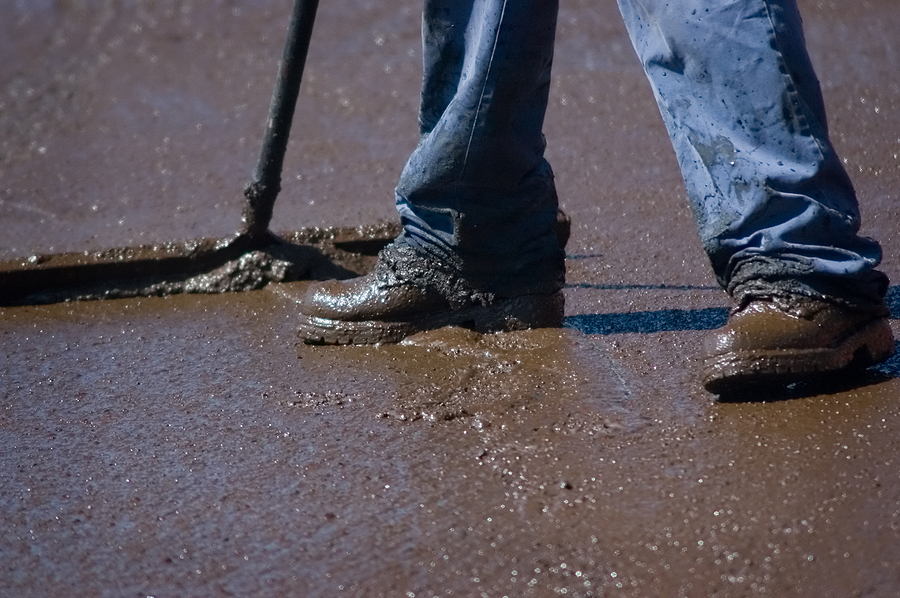
Understanding Why Asphalt Degrades
To understand when to seal, it helps to understand why asphalt deteriorates in the first place. Asphalt is a flexible pavement, consisting of rock aggregates held together by a binder (bitumen). When it is fresh, it is dark and flexible. Over time, two main enemies attack this binder: ultraviolet (UV) rays and water.
Think of UV rays acting on asphalt the way the sun acts on unprotected skin. Over time, the sun oxidizes the binder, causing it to lose flexibility and turn a brittle gray. Once the surface becomes brittle, it is prone to cracking.
This is where water enters the equation. When water penetrates these small cracks, it erodes the sub-base beneath the driveway. Without a sturdy base, the asphalt sinks, creating potholes and “alligator cracking” that looks like reptilian skin. Effective sealing acts as a sunscreen and a raincoat, replenishing the binder and blocking moisture intrusion.
The Ideal Sealing Season
So, when is the magic window for application? In the asphalt paving industry, we look for specific meteorological conditions rather than just calendar dates, though these usually align with a specific season.
The general rule of thumb is that the ambient temperature needs to be at least 50 degrees Fahrenheit and rising for the sealer to cure properly. Furthermore, the temperature shouldn’t drop below 50 degrees for at least 24 hours after application.
This typically places the ideal sealing season between May and October.
Why Summer is King
The warmer months are generally the sweet spot. The heat of the summer sun helps the sealant bond to the asphalt and accelerates the drying process. However, extreme heat can also be tricky; if the pavement is scorching hot, the sealer might dry too quickly, leading to peeling or brush marks.
Conversely, attempting to seal in late autumn (November) is a gamble. If the temperature drops near freezing overnight before the sealcoat has fully cured, the film won’t form correctly, rendering the application useless and leaving your driveway unprotected for winter.
Regional Considerations: The Indiana Factor
If you live in Indiana, you are all too familiar with the unpredictability of the weather. However, the most consistent threat to Indiana pavement is the freeze-thaw cycle.
In the Midwest, we experience fluctuating temperatures during winter and early spring. Snow melts during the day, water seeps into tiny cracks in the driveway, and then it freezes at night. When water freezes, it expands by about 9%. This expansion exerts tremendous pressure on the asphalt, forcing cracks open wider. This cycle repeats dozens of times a season, turning hairline fractures into gaping holes by April.
Because of this, the most strategic time for Hoosiers to seal their asphalt is late summer or early fall (August to September).
By sealing during this window, you ensure the driveway is fully cured and sealed tight right before the winter assault begins. You lock out the moisture preventing the freeze-thaw cycle from wreaking havoc. If you miss the fall window, wait until late spring (May) after the heavy rains have subsided and temperatures have stabilized.
Schedule a Sealcoating Assessment in Indy Today ✏
DIY vs. Professional Sealing
Once you’ve decided on the timing, the next decision is the method. Is this a weekend project for you, or a job for the experts?
The DIY Route
Taking this on yourself can save money upfront. Buckets of sealant are available at local hardware stores, and for small driveways, it is a manageable afternoon task.
Pros:
- Lower initial cost.
- Satisfaction of completing a home improvement project.
Cons:
- Material Quality: Store-bought sealers are often coal-tar emulsions or lower-grade acrylics that may not last as long as industrial blends.
- Labor Intensive: Mixing buckets by hand and spreading sealant with a squeegee is physically demanding work.
- Mess: It is notoriously difficult to apply cleanly without specialized equipment.
Professional Sealing
Hiring a professional pavement sealcoating service changes the dynamic from labor to logistics.
Pros:
- Superior Materials: Professionals typically use commercial-grade sealers with additives (like sand or latex) for durability and traction that aren’t available to the public.
- Application Method: Pros often use spray systems that apply a uniform coat, getting into the texture of the asphalt better than a hand squeegee.
- Preparation: They have industrial blowers and wire brooms to clean the surface far better than a garden hose can.
Cons:
- Higher cost than buying buckets yourself.
- If your driveway has significant cracking or is quite large, professional help is usually the more economical choice in the long run due to the longevity of the results.
Preparation Tips for a Perfect Seal
Whether you hire a pro or do it yourself, the result is only as good as the preparation. You cannot seal over dirt, oil, or grass.
- Edging: Trim back any grass or weeds overhanging the edges of the pavement. This ensures the sealant covers the entire surface, preventing water from seeping in at the sides.
- Cleaning: The surface must be immaculately clean. A broom isn’t enough; you need a high-powered blower or a pressure washer to remove dust from the pores of the asphalt. If using water, the driveway must be 100% dry before sealing.
- Oil Spot Priming: Sealcoat won’t stick to motor oil. Scrub oil stains with a degreaser and apply a primer specifically designed for oil spots.
- Crack Filling: This is the most crucial step. Sealcoat is a protective layer, not a structural repair. Cracks wider than a quarter-inch need to be filled with a rubberized crack filler (hot or cold pour) before the overall sealant is applied.
Maintenance After Sealing
Once the job is done, patience is key. While the surface might look dry in a few hours, it takes time to cure (harden) completely.
- Wait to Drive: Keep vehicles off the surface for at least 24 to 48 hours. If the humidity is high, wait longer.
- Irrigation Awareness: Turn off sprinklers near the driveway for 24 hours before and after application.
- Regular Cleaning: Keep leaves and debris off the sealed surface. Decomposing organic matter can trap moisture and stain the pavement.
- Check for Wear: High-traffic areas (like where you turn your steering wheel while stopped) will wear down faster. Keep an eye on these spots for future maintenance.
Protect Your Pavement Before Winter Hits
Asphalt sealing is more than just a cosmetic facelift for your home; it is a vital maintenance practice that defends against oxidation, moisture, and the brutal Indiana freeze-thaw cycle. By choosing the right time of year—ideally late spring through early fall—and ensuring proper preparation, you can double the life of your pavement.
Don’t let another winter widen those cracks. If you want to ensure your driveway is protected with commercial-grade materials and expert application, we are here to help.
Ready to protect your investment? Contact Us Today for professional asphalt sealcoating services in Indianapolis and get a free quote before the season ends.
Related Post: Quality You Can See: The Impact of Commercial Asphalt Sealing



